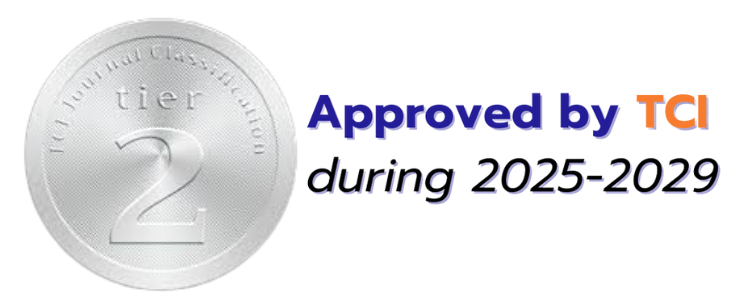ฟาร์มสถานศึกษากับการส่งเสริมการเรียนรู้ตลอดชีวิตตามข้อเสนอสี่เสาหลักการศึกษาของยูเนสโก|Educational Institution’s Farm and the Promotion of Learning throughout Life in according to UNESCO’s 4 Pillars of Education
คำสำคัญ:
สี่เสาหลักการศึกษาของยูเนสโก, การส่งเสริมการเรียนรู้ตลอดชีวิต, ฟาร์มสถานศึกษา, เกษตรและสิ่งแวดล้อมศึกษา, UNESCO’s 4 Pillars of Education, the promotion of lifelong learning, educational institution’s farm, Agricultural and Environmental Educationบทคัดย่อ
การวิจัยนี้มีวัตถุประสงค์เพื่อศึกษาความคิดเห็นของนิสิตเกี่ยวกับการส่งเสริมการเรียนรู้ตลอดชีวิตของฟาร์มสถานศึกษาตามข้อเสนอสี่เสาหลักการศึกษาของยูเนสโก กลุ่มผู้ให้ข้อมูล ได้แก่ นิสิตสาขาวิชาเกษตรและสิ่งแวดล้อมศึกษา คณะศึกษาศาสตร์และพัฒนศาสตร์ มหาวิทยาลัยเกษตรศาสตร์ วิทยาเขตกำแพงแสน
ชั้นปีที่ 1- 4 จำนวน 158 คน จำแนกเป็นนิสิตที่ไม่มีตำแหน่งในคณะกรรมการบริหารงานฟาร์ม จำนวน 148 คน และที่มีตำแหน่งในคณะกรรมการบริหารงานฟาร์ม จำนวน 10 คน เก็บรวบรวมข้อมูลด้วยแบบสอบถาม
แบบสัมภาษณ์เชิงลึกกึ่งโครงสร้าง และการสังเกตแบบมีส่วนร่วม วิเคราะห์ข้อมูลเชิงปริมาณด้วยสถิติพรรณนา ประกอบด้วย ค่าความถี่ ค่าเฉลี่ย ส่วนเบี่ยงเบนมาตรฐาน และร้อยละ วิเคราะห์ข้อมูลเชิงคุณภาพด้วย
การวิเคราะห์เนื้อหา
ผลการวิจัยพบว่า ระดับความคิดเห็นของนิสิตเกี่ยวกับการส่งเสริมการเรียนรู้ตลอดชีวิตของฟาร์มสถานศึกษา มีค่าเฉลี่ยภาพรวมอยู่ในระดับสูงมาก ( = 4.40, S.D. = 0.70) โดยการเรียนรู้เพื่อปฏิบัติได้จริง
มีค่าเฉลี่ยสูงที่สุด ( = 4.42, S.D. = 0.70) รองลงมาคือ การเรียนรู้เพื่อชีวิต ( = 4.41, S.D. = 0.69) การเรียนรู้เพื่อการอยู่ร่วมกัน ( = 4.38, S.D. = 0.70) และการเรียนเพื่อรู้ ( = 4.37, S.D. = 0.71) ตามลำดับ และผลจากการสัมภาษณ์เชิงลึก นิสิตสะท้อนไปในทิศทางเดียวกันว่า การปฏิบัติงานในฟาร์ม สามารถส่งเสริมการเรียนรู้ตลอดชีวิตตามข้อเสนอสี่เสาหลักการศึกษาของยูเนสโกได้ทุกด้าน
This research aimed to examine the opinions toward the promotion of learning throughout life of the educational institution’s farm in the light of UNESCO’s 4 Pillars of Education. Research informants were 158 1st-4th-year students majoring in Agricultural and Environmental Education from the Faculty of Education and Development Sciences at Kamphaeng-Sean Campus of Kasetsart University. Among those informants, 148 were students who were not members of the Administrative Committee of the Department of Human and Community Resource Development’s Farm, and 10 were Committee members. Research data were collected using a questionnaire, an in-depth semi-structured interview, and participatory observation. Descriptive statistics, namely, frequency, mean, standard derivation, and percentage were used to analyze quantitative data. Qualitative data were analyzed by content analysis.
The results were found as follows: The students’ opinions toward the promotion of learning throughout the life of the educational institution’s farm were average at a very high level ( = 4.40, S.D. = 0.70). According to UNESCO’s 4 Pillars of Education, the mean of “Learning to do” was at the highest level ( = 4.42, S.D. = 0.70), followed by “Learning to be”, “Learning to live together”, and “Learning to know ( = 4.41, S.D. = 0.69, = 4.38, S.D. = 0.70,” = 4.37, S.D. = 0.71), respectively. Furthermore, data from the in-depth interview revealed students’ identical reflections that the hands-on experiences from the farm activities promoted learning throughout life in according to all aspects of UNESCO’s 4 Pillars of Education.
##plugins.generic.usageStats.downloads##
เอกสารอ้างอิง
Bagnall, R.G. (2016). Sustainability in and through Lifelong Learning: Making Space for Everyday Knowledge and Regionalism in a Globalizing World. In: Robertson, M., Tsang, P. (eds) Everyday Knowledge, Education and Sustainable Futures. Education in the Asia-Pacific Region: Issues, Concerns and Prospects, 30. Springer, Singapore.
Chiappe, A., A.M.T. Samper, A.E. Wills, and I. Restrepo. (2020). Rethinking 21st century schools: the quest for lifelong learning ecosystems. Ensaio: Avaliação e Políticas Públicas em Educação,Rio de Janeiro, 28(107), p. 521-544.
Charungkaittikul, S. & Henschke, J. A. (2014). Strategies for Developing a Sustainable Learning Society: An Analysis of Lifelong Learning in Thailand. International Review of Education, 60(4), 499-522. https://trace.tennessee.edu/cgi/viewcontent.cgi?article=1390&context=utk_IACEbrowseall
Dailey A.L., C.A. Conroy, and Shelley-Tolbert C.A. (2001). Using Agricultural Education as the Context to Teach Life Skills. Journal of Agricultural Education, 42(1), 11-20.
Department of Human and Community Resource Development. (2023). Self-assessment Report of a Bachelor of Science Program in Agricultural and Environmental Education, Department of Human and Community Resource Development, Faculty of Education and Development Sciences, Kasetsart University. Academic year 2023. [Unpublished manuscript] [translated]
Gelpi, E. (1985). Lifelong education and international relations. Routledge.
Jaldemark, J. & Bång, Å. (2020). Reaching for a hybrid and networked university through lifelong learning initiatives. In the 12th International Conference on Networked Learning, (p. 1- 4). http://miun.diva-portal.org/smash/get/diva2:1431510/FULLTEXT01.pdf
Lichtman, G. (2017). EdJourney: A Roadmap to the Future of Education. Wiley-Blackwell
Luka, I. & Sumalee, S. (2015). Lifelong learning strategies and practice in Latvia and Thailand. Policy Futures in Education, 13(4), 529-545. https://doi.org/10.1177/1478210315571222.
Ministry of Agriculture and Cooperatives. (2022). Agricultural and Cooperative Action Plan 2023 - 2027. Retrieved from Bangkok: Ministry of Agriculture and Cooperatives. [translated]
Panyakom, R. (2015). Farming system with Vocational Agricultural Education Management. Journal of Industrial Education, 14(2), 748–755.
Ratana-Ubol, A. & Henschke. J. A. (2015). Cultural Learning Processes through Local Wisdom: A Case Study on Adult and Lifelong Learning in Thailand. International Journal of Adult Vocational Education and Technology, 6(2), 41-61. https://doi.org/10.4018/ijavet.2015040104.
Siriwan, N. (2014). Study of Thai agriculture: important points that need to be reviewed. Bangkok: Mean Service Supply Limited Partnership. [translated]
Smeds Pia, Jeronen Eila, & Kurppa Sirpa. (2015). Farm Education and the Value of Learning in an Authentic Learning Environment. International Journal of Environmental & Science Education, 10(3), 381-404.
Scatolini, A. (2010). The “Glocal” Dimension of Teacher Education Programs. In G. Milton (ed.), International explorations in education. LAP Lambert Academic Publishing.
Supnui, I. (2022). Engaged Scholarship and Lifelong Learning through an Educational Farm in Nakhon Pathom Province, Thailand [Doctor of Philosophy (Extension Education), University of the Philippines Los Baños].
Supnui, K., Tanpichai, P., & Soopunyo, W. (2013). Development of training curriculum on leadership in agricultural and environmental education activities using a university’s farm as a learning resource. Kasetsart Journal of Social Sciences, 34(2), 255-268.
UNESCO. (2004). Learning: The Treasure within. Report for UNESCO of the International Commission on Education for the Twenty-first Century. http://unesdoc.unesco.org/images/ 0022/002273/227373e.pdf
UNESCO. (2011). International Standard Classification of Education. http://uis.unesco.org/sites/default/files /documents/international-standard-classification-of-education-isced-2011-en.pdf.
Yamane, T. (1973). Statistics: an introductory analysis. New York: New York: Harper & Row.
Yang, J., Schneller, S., & Roche, S. (2015). The role of higher education in promoting lifelong learning. UNESCO Institute for Lifelong Learning. https://unesdoc.unesco.org/ark:/48223/pf0000233592.







